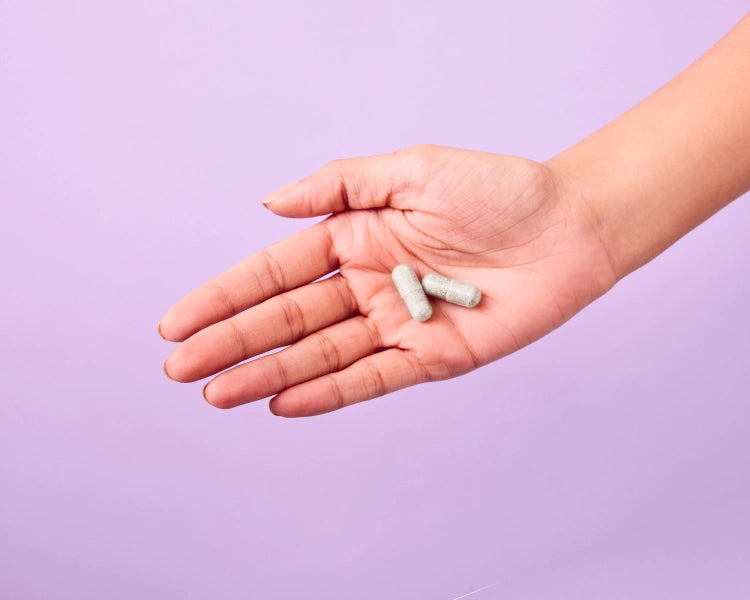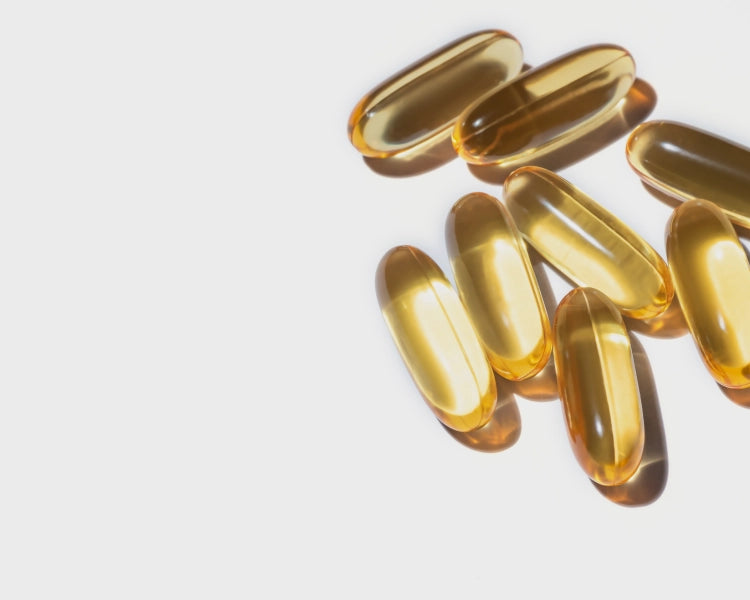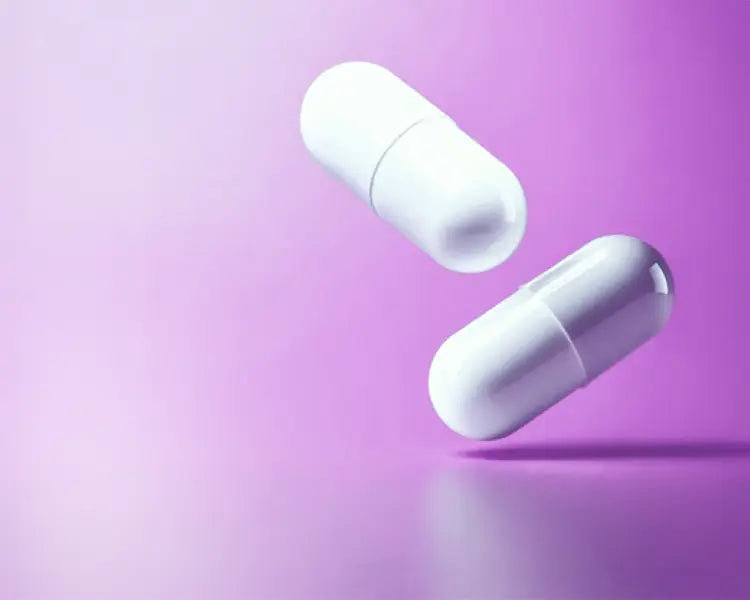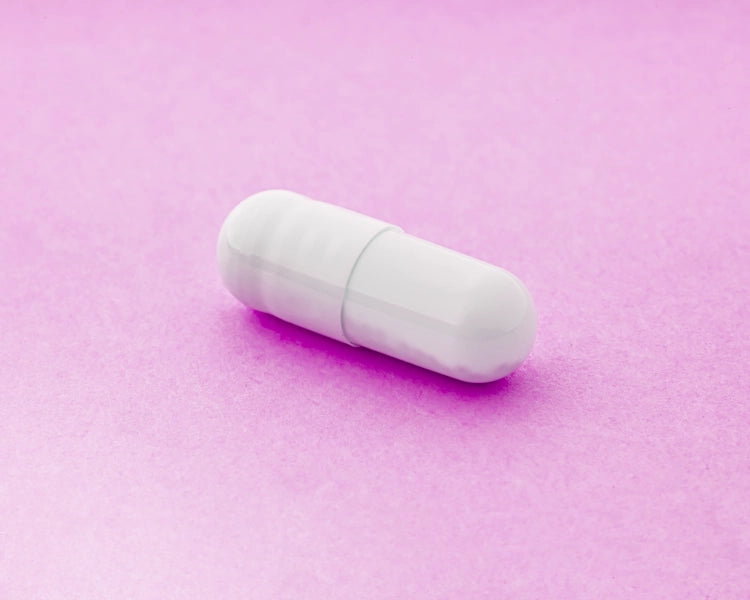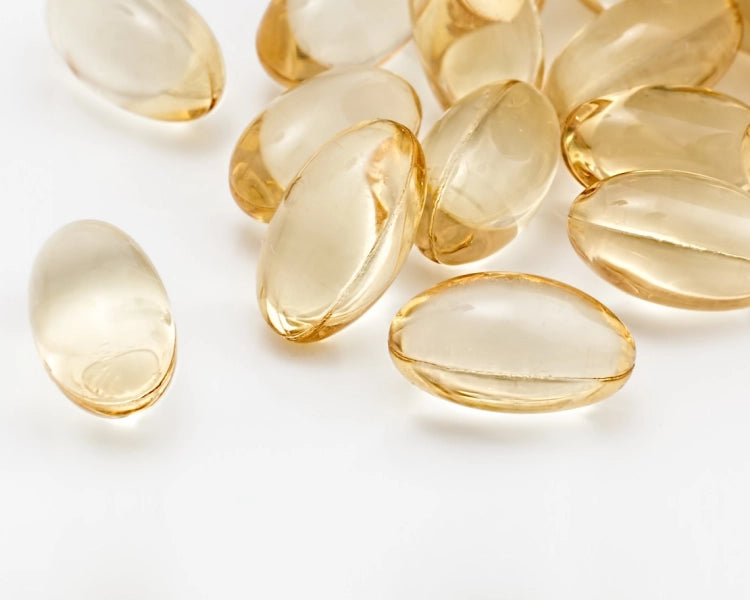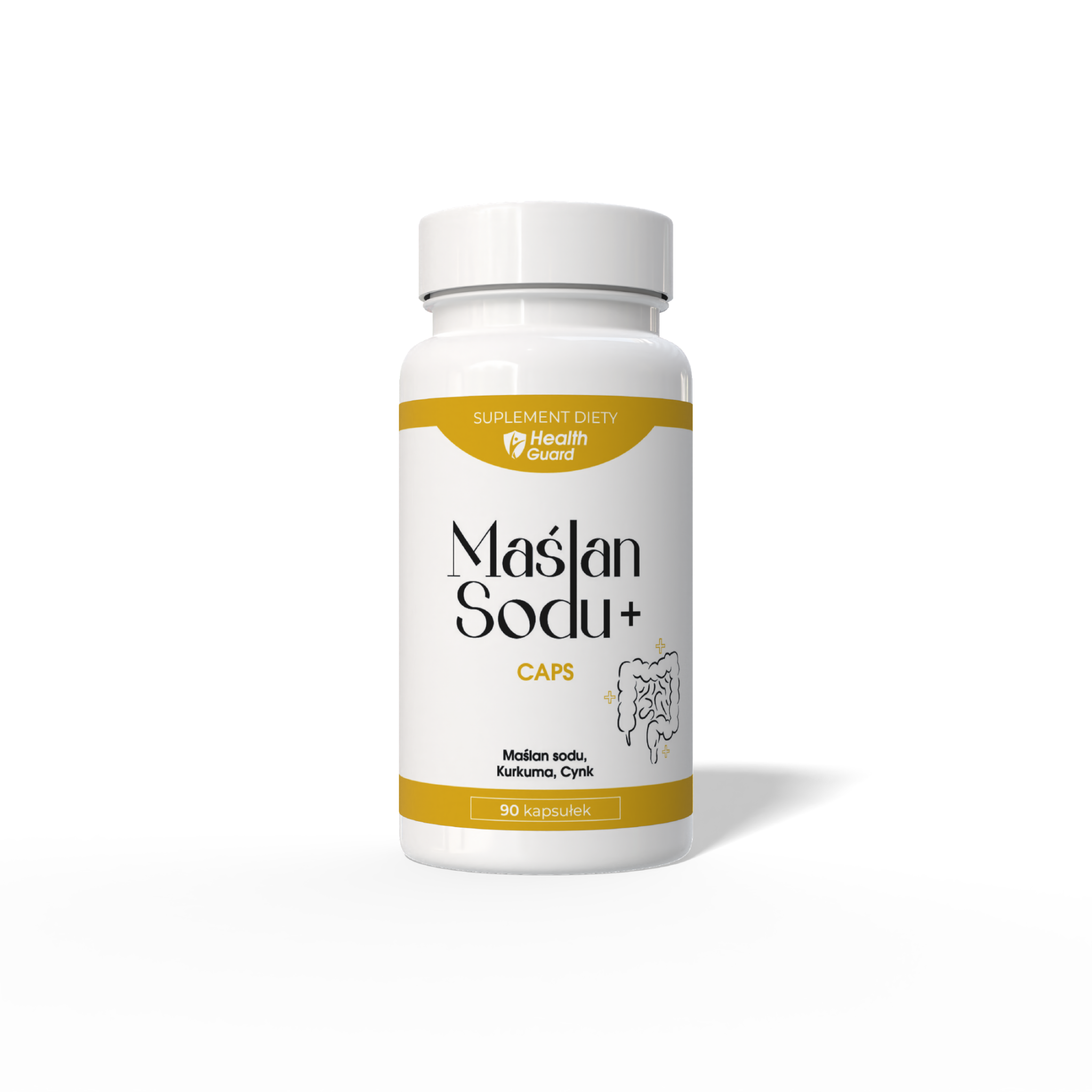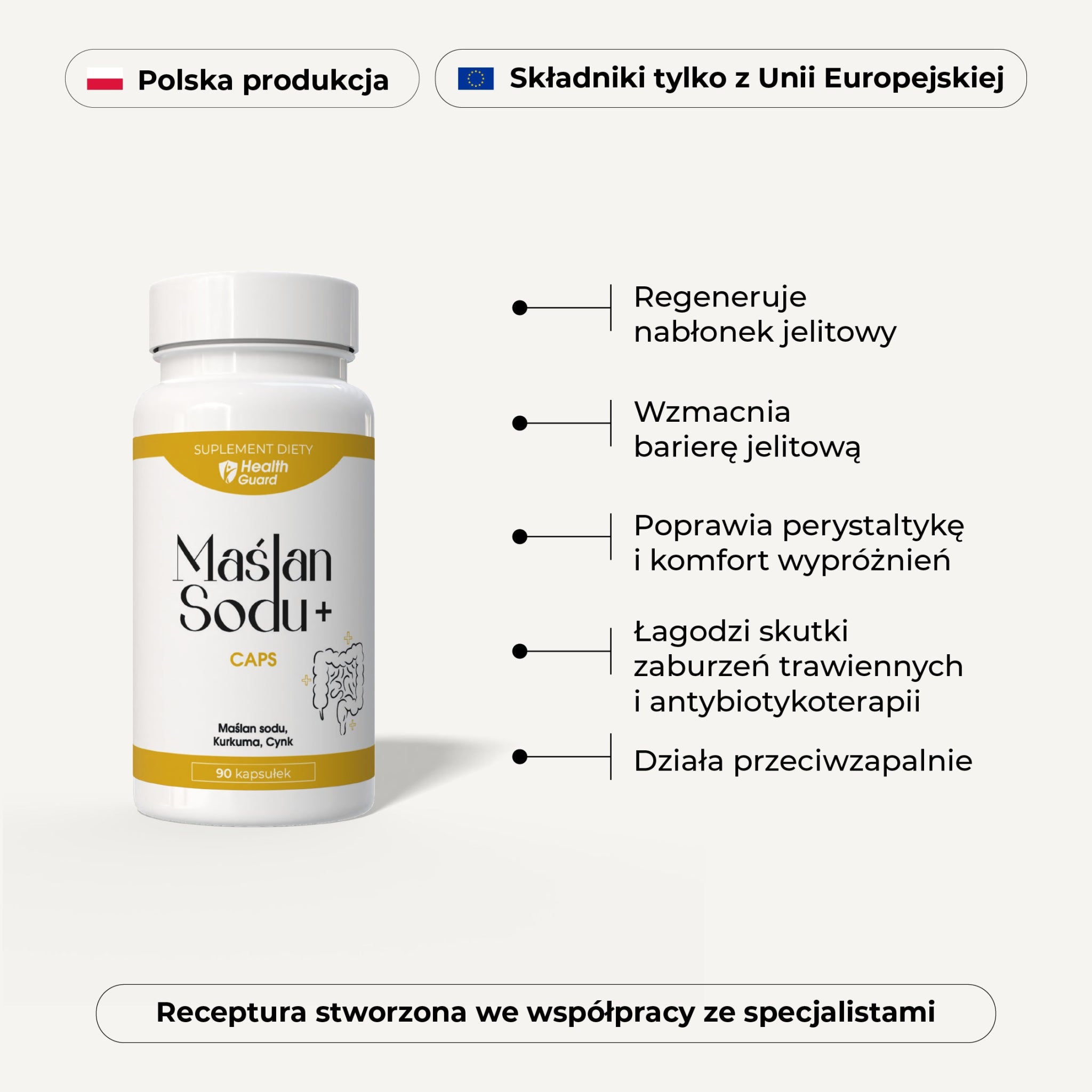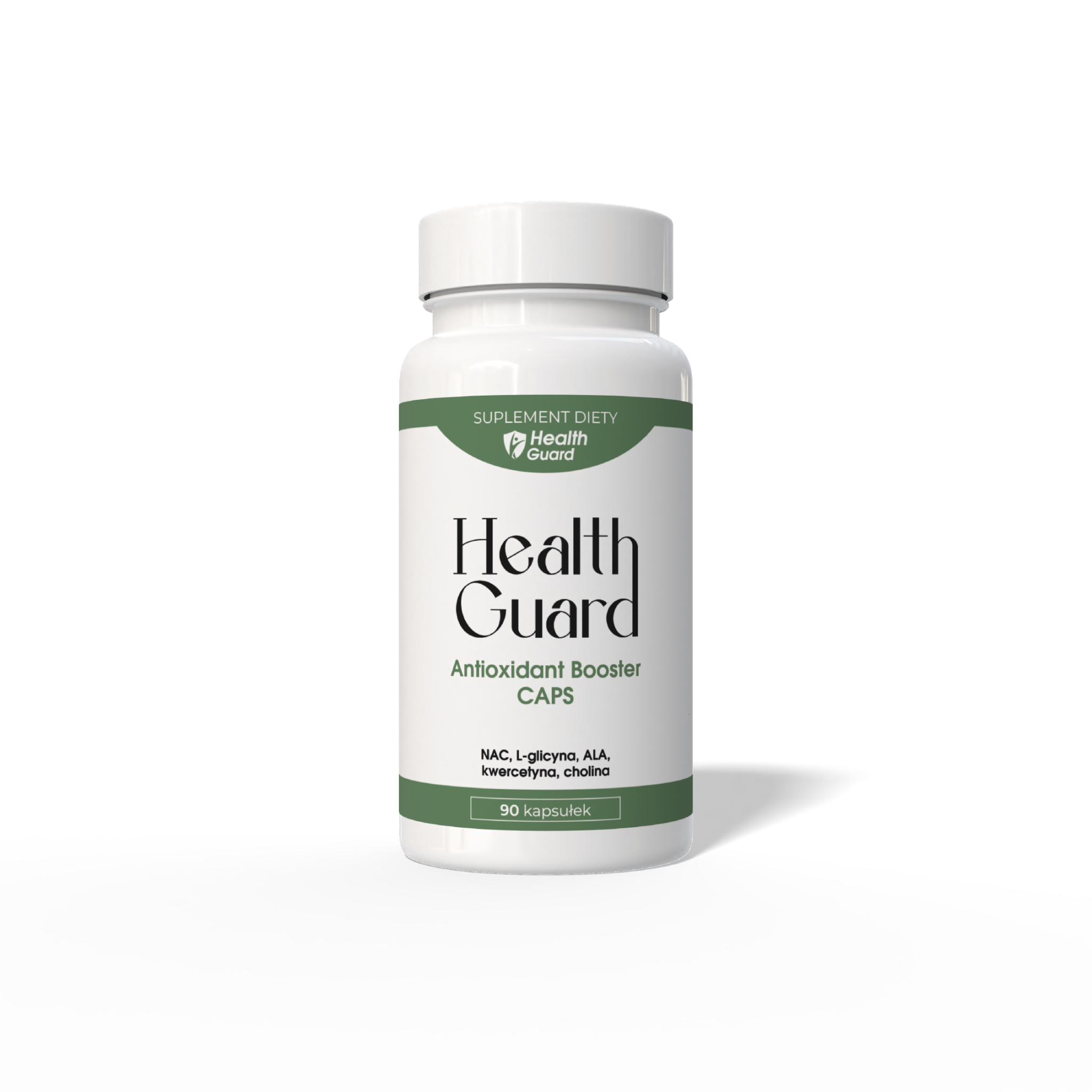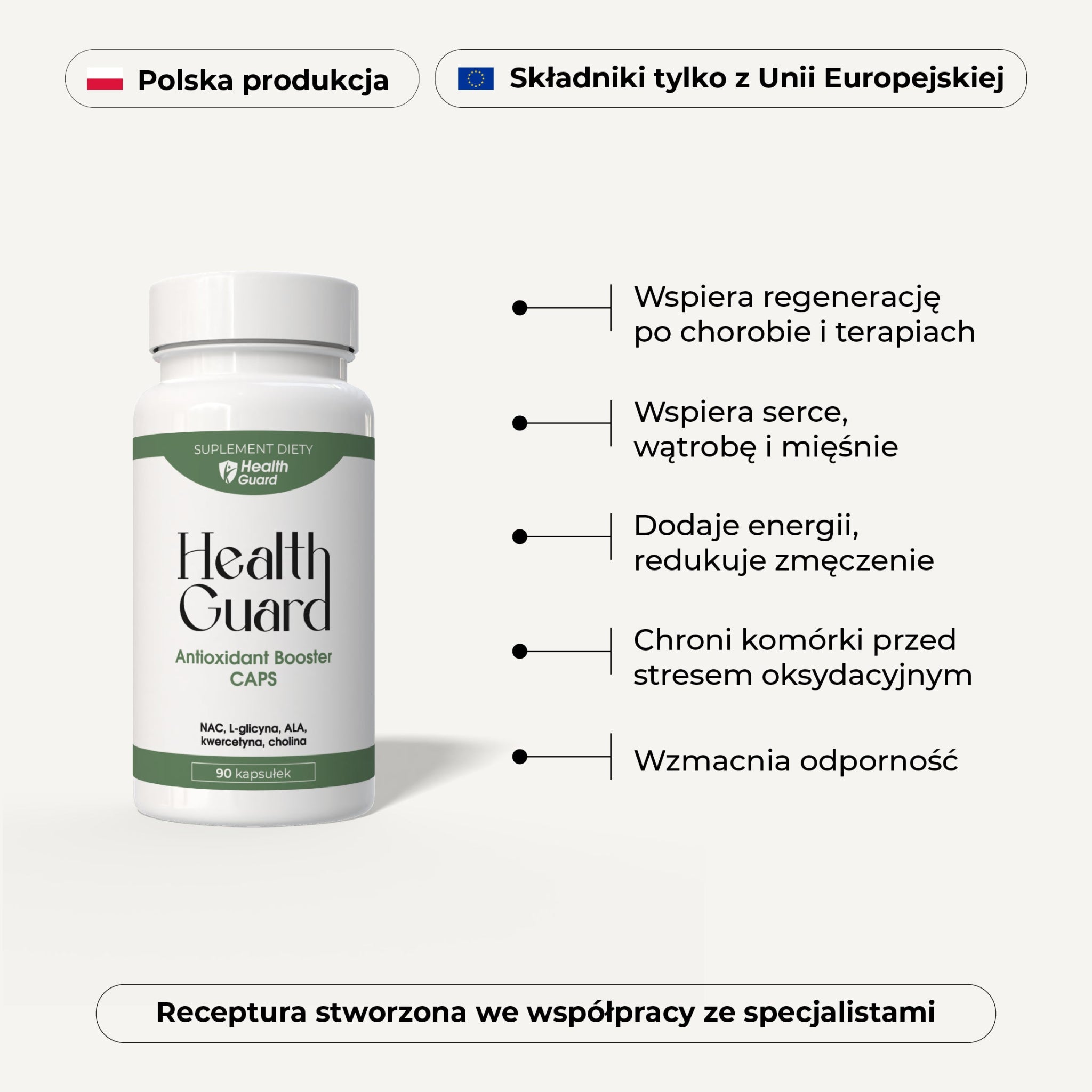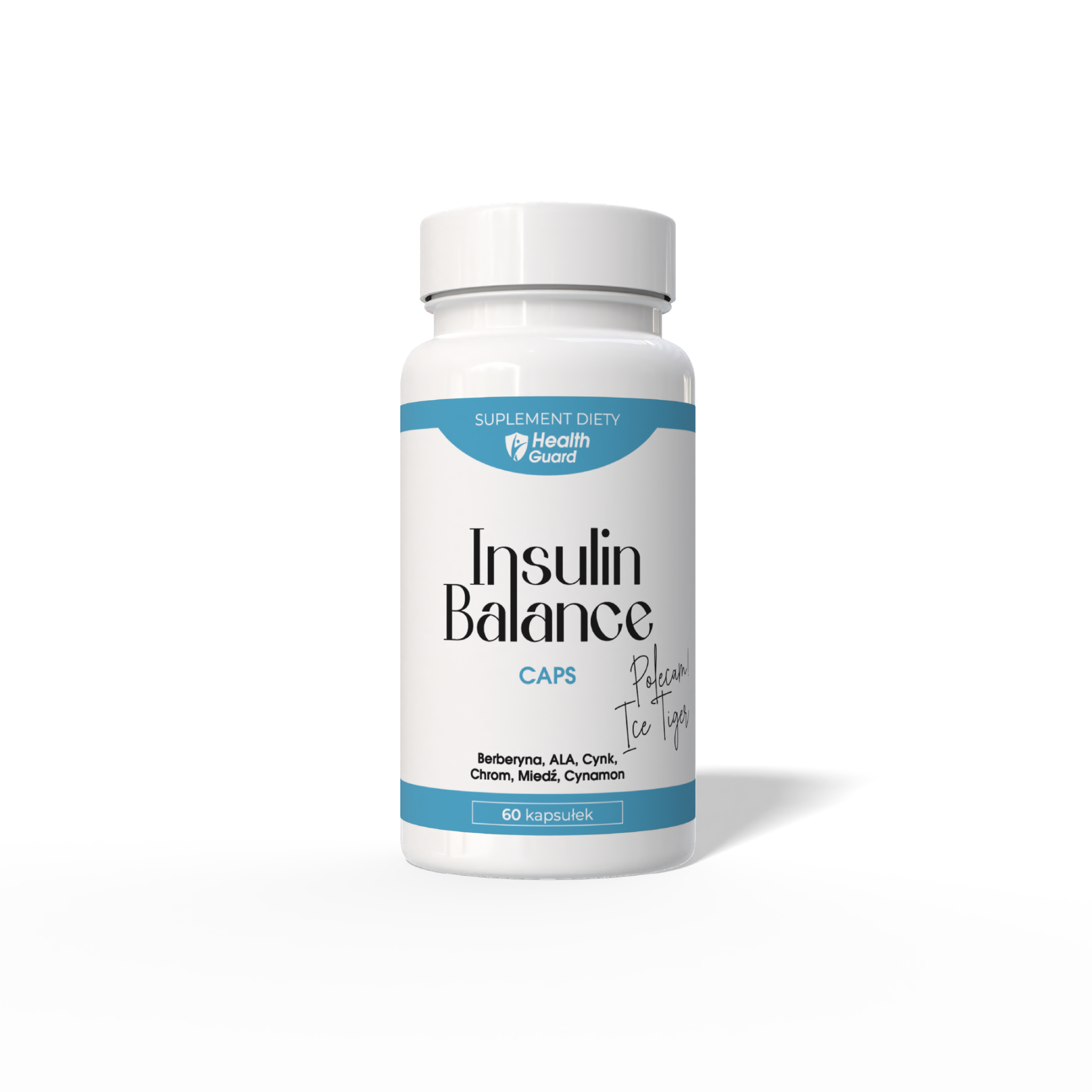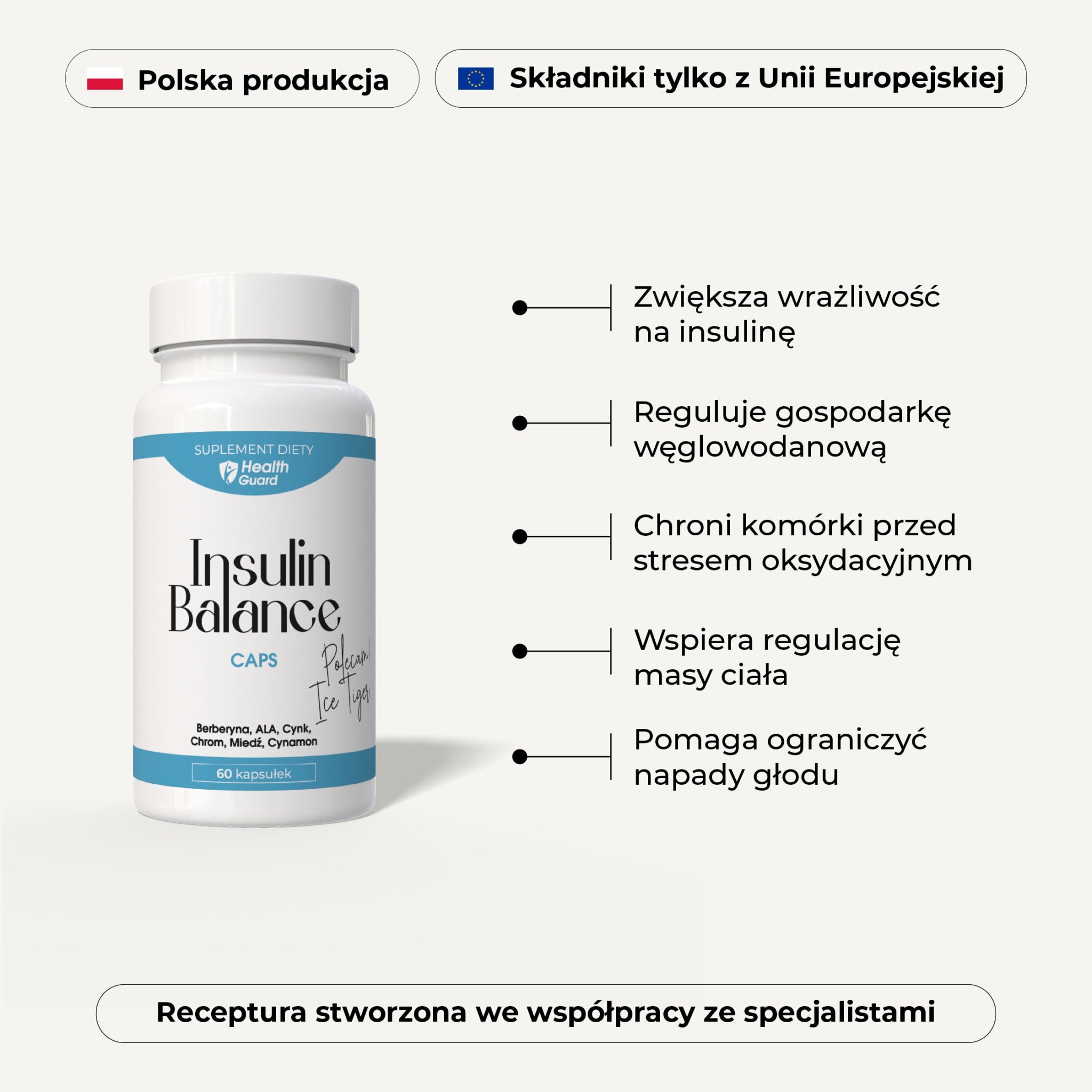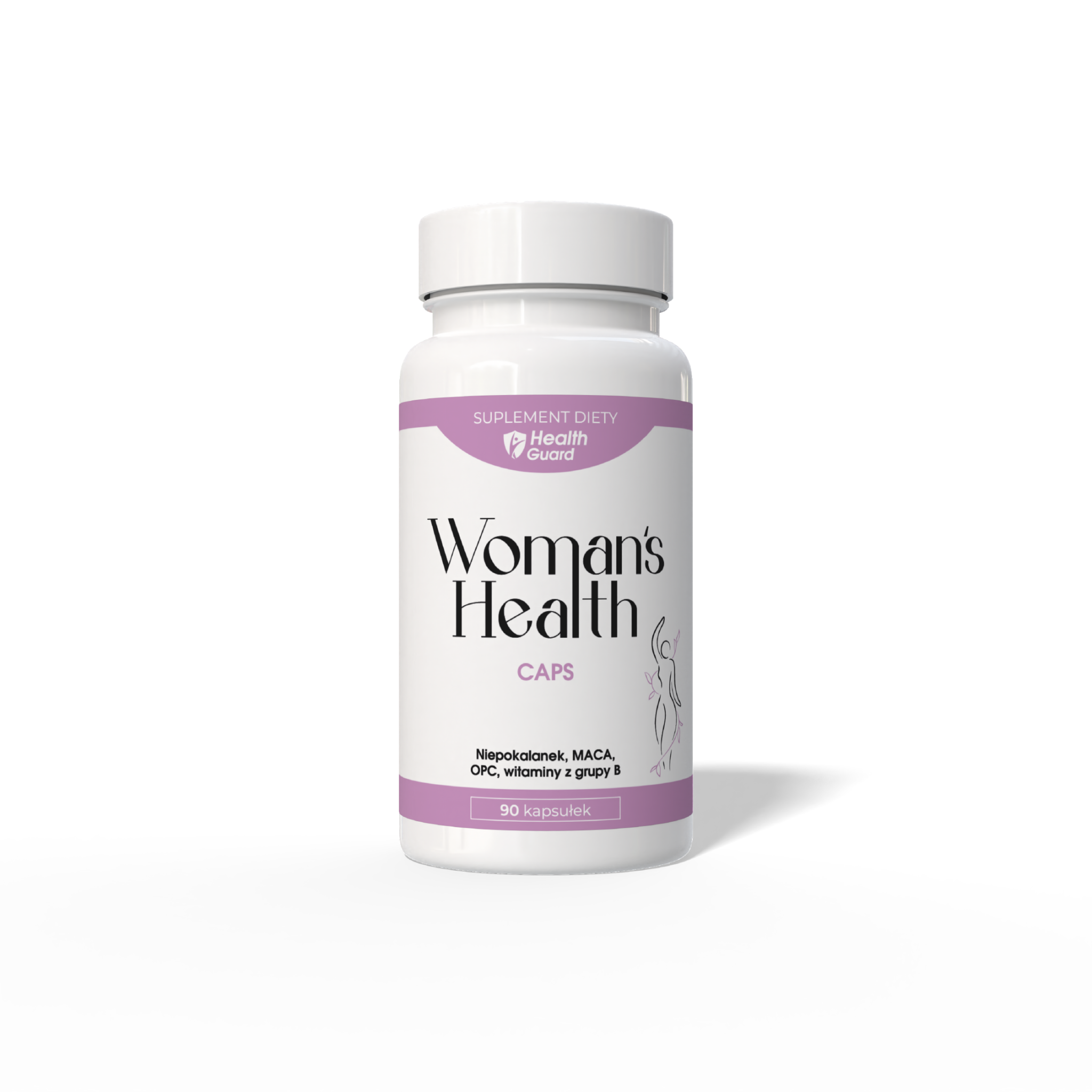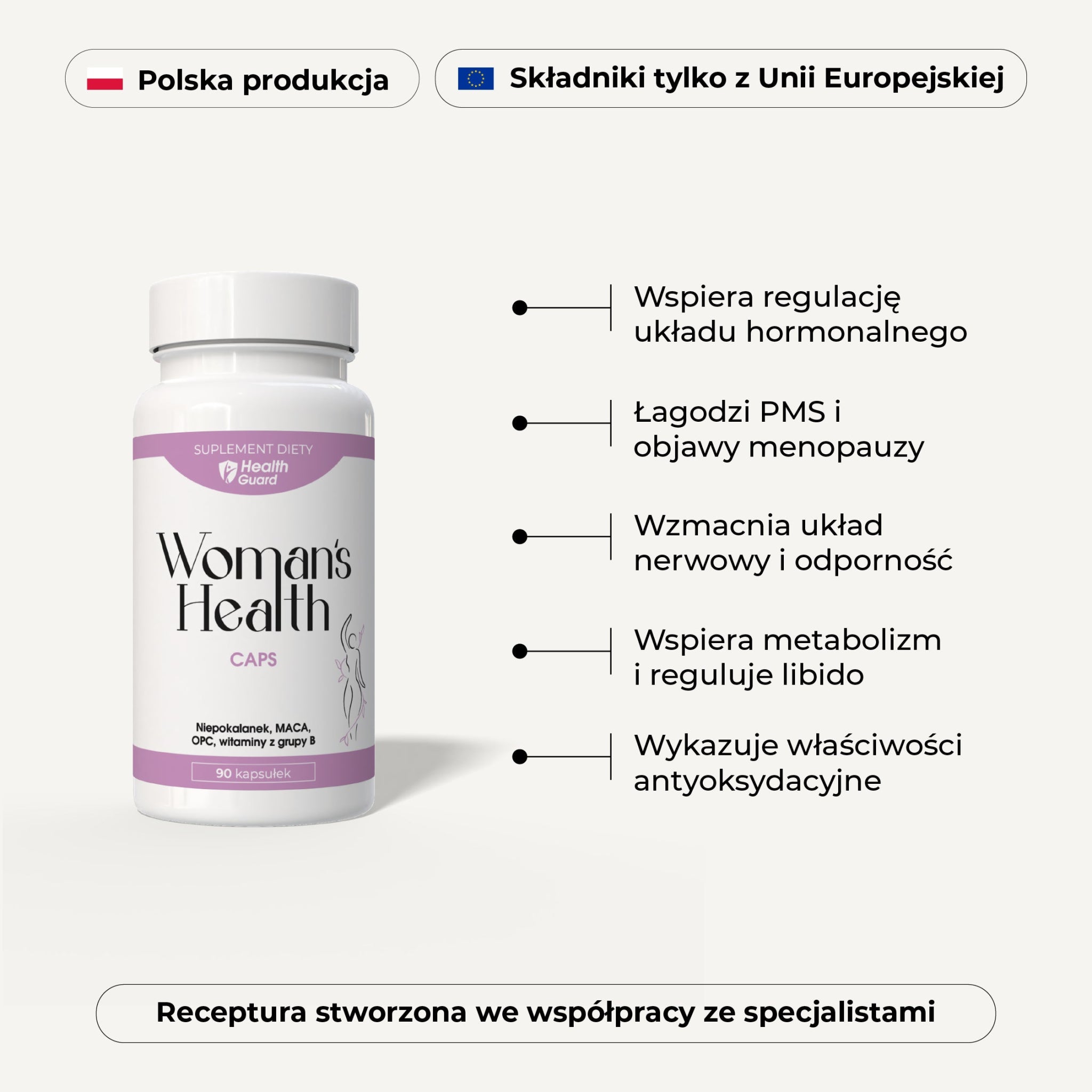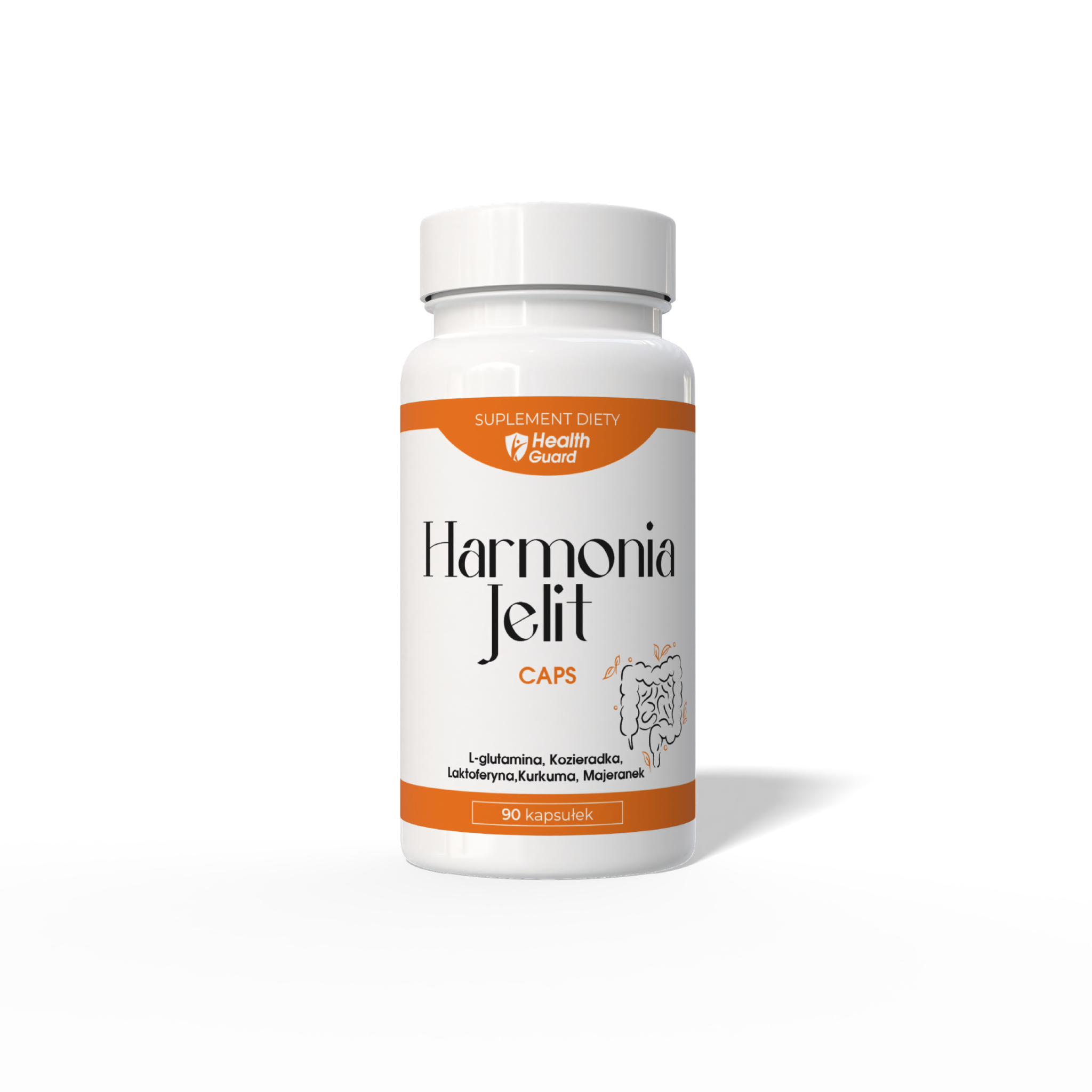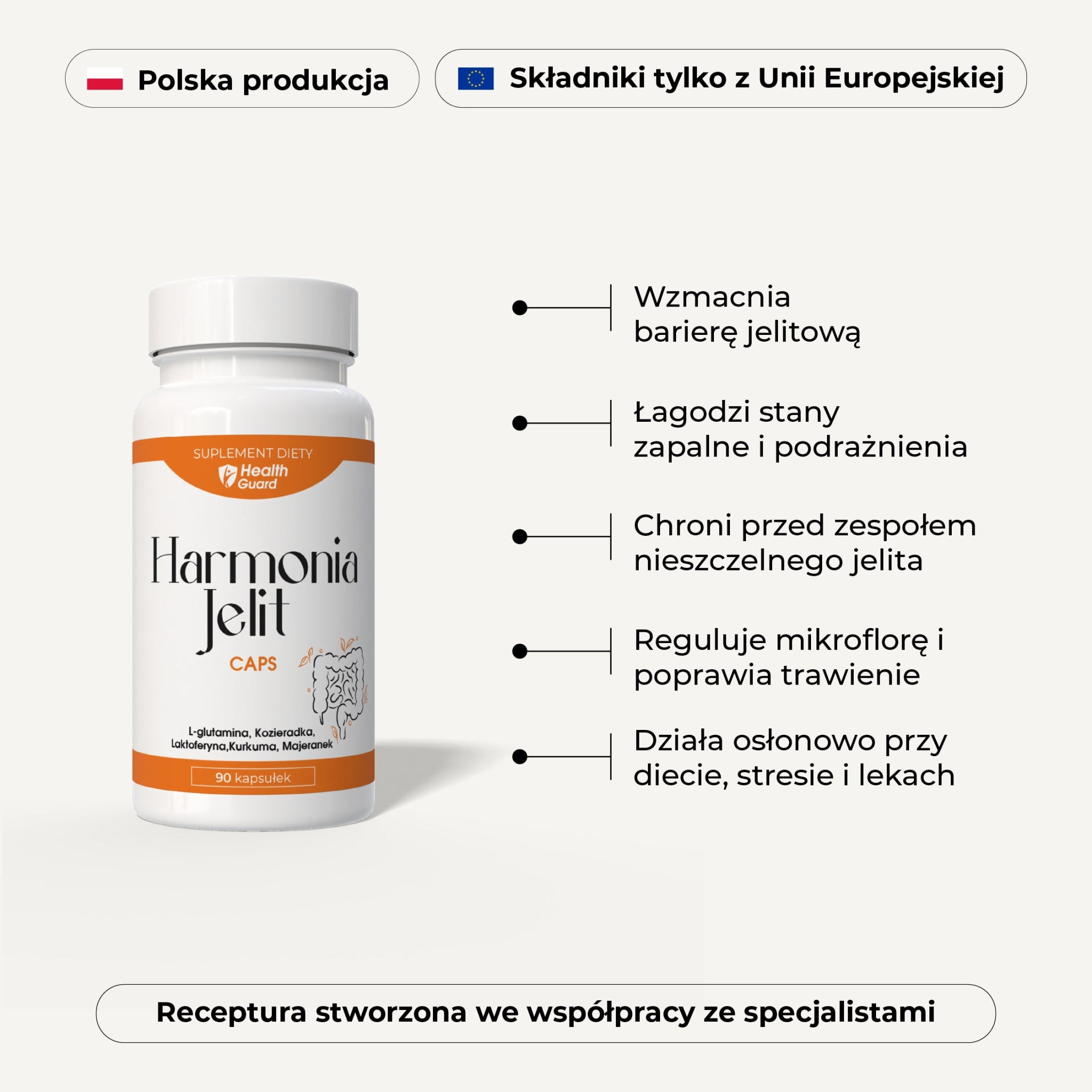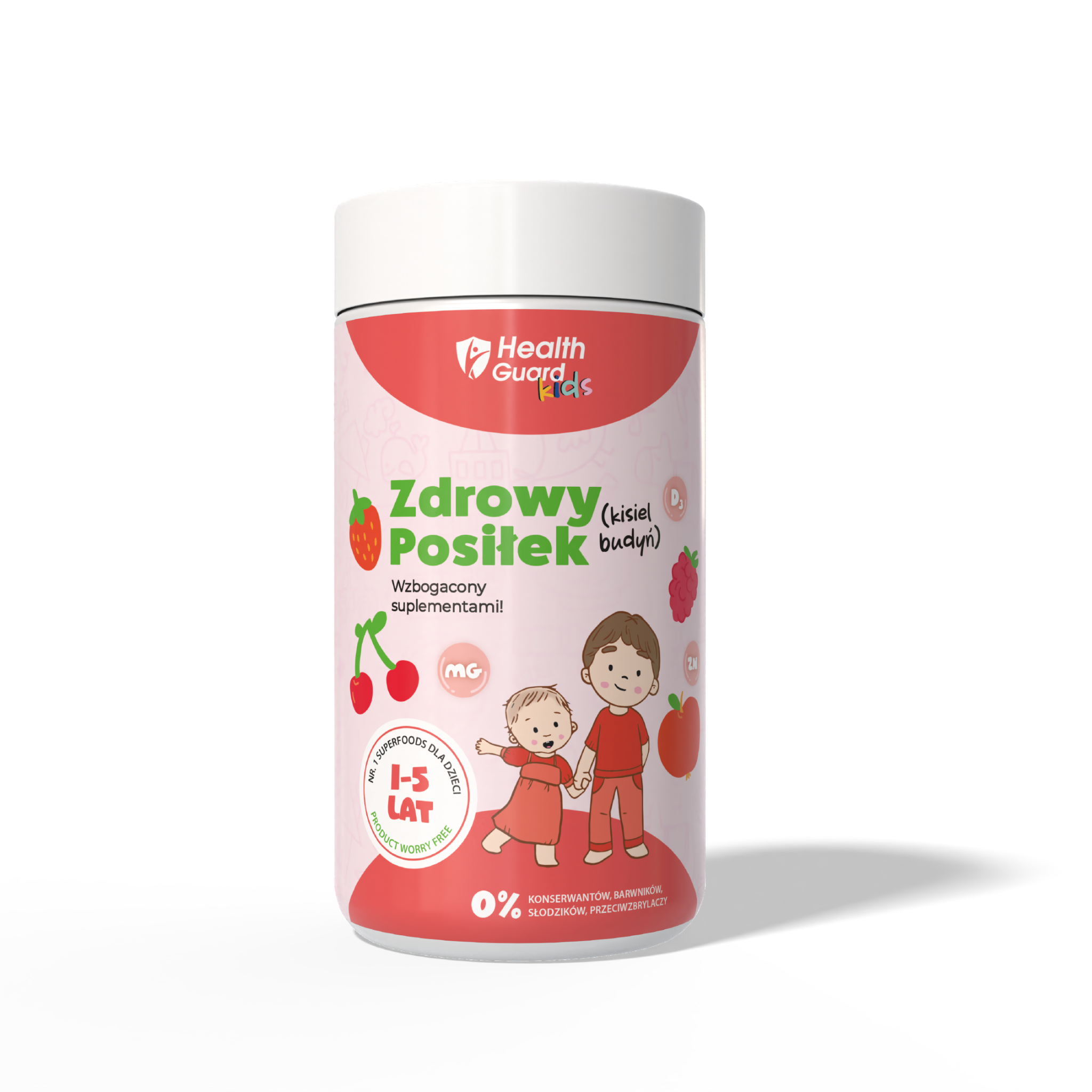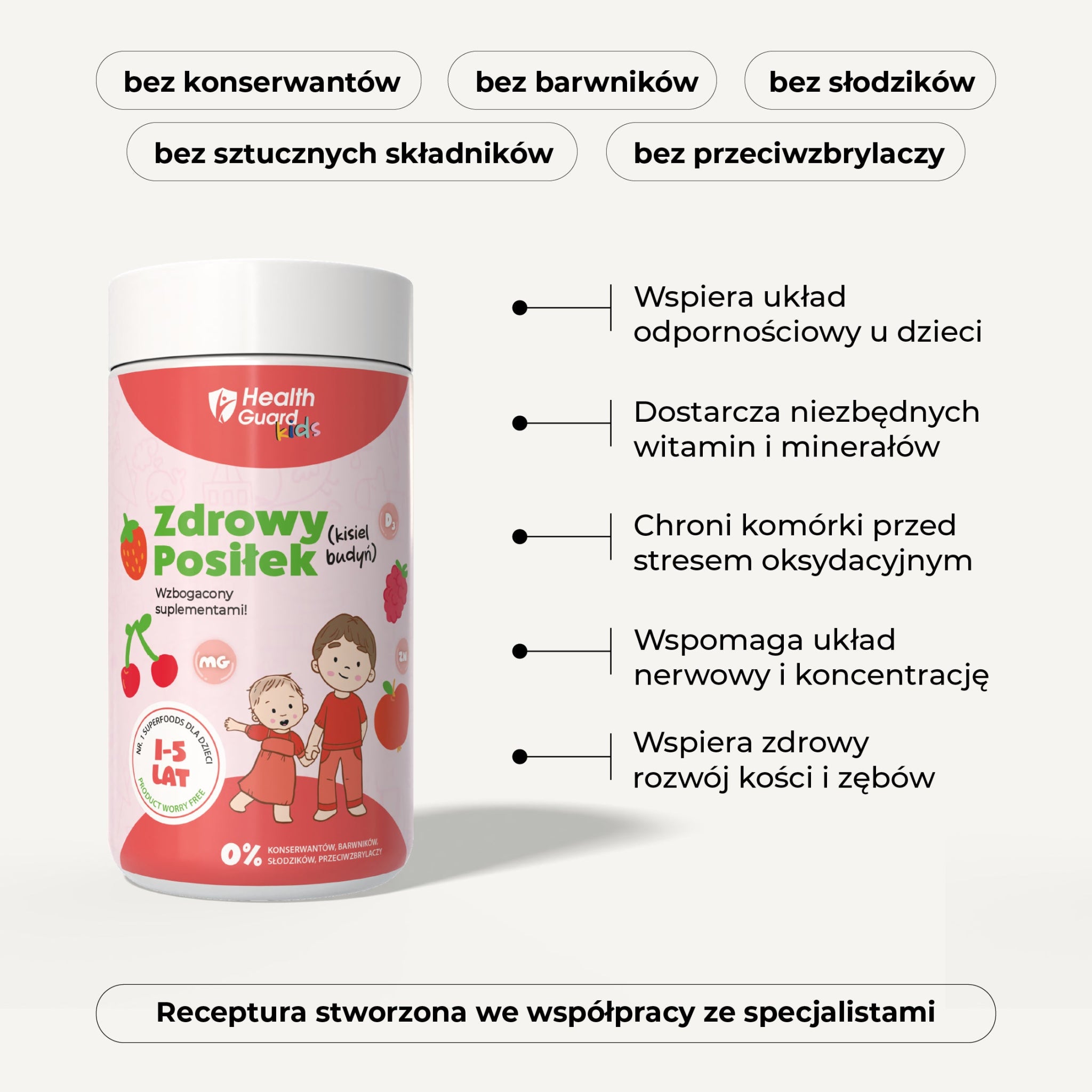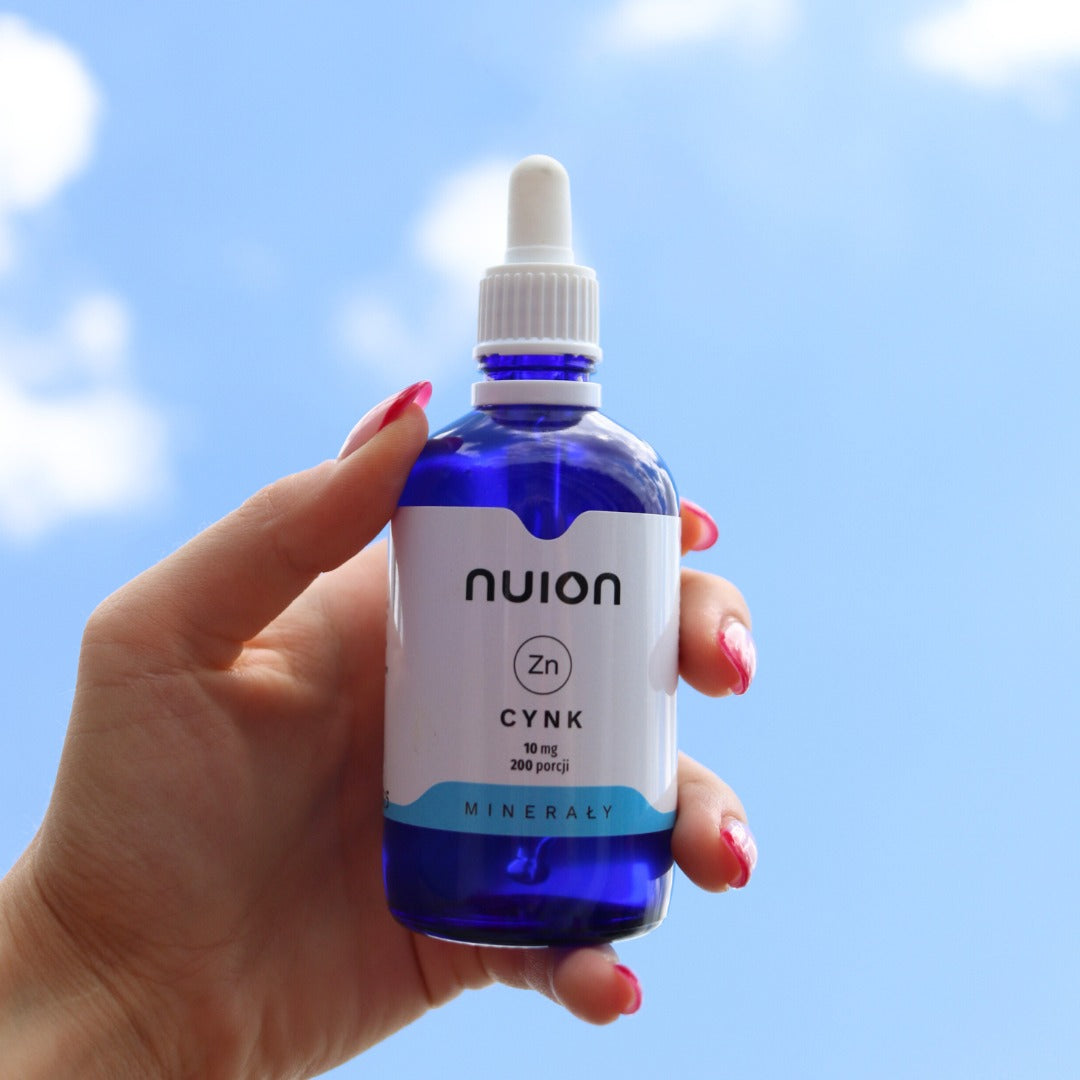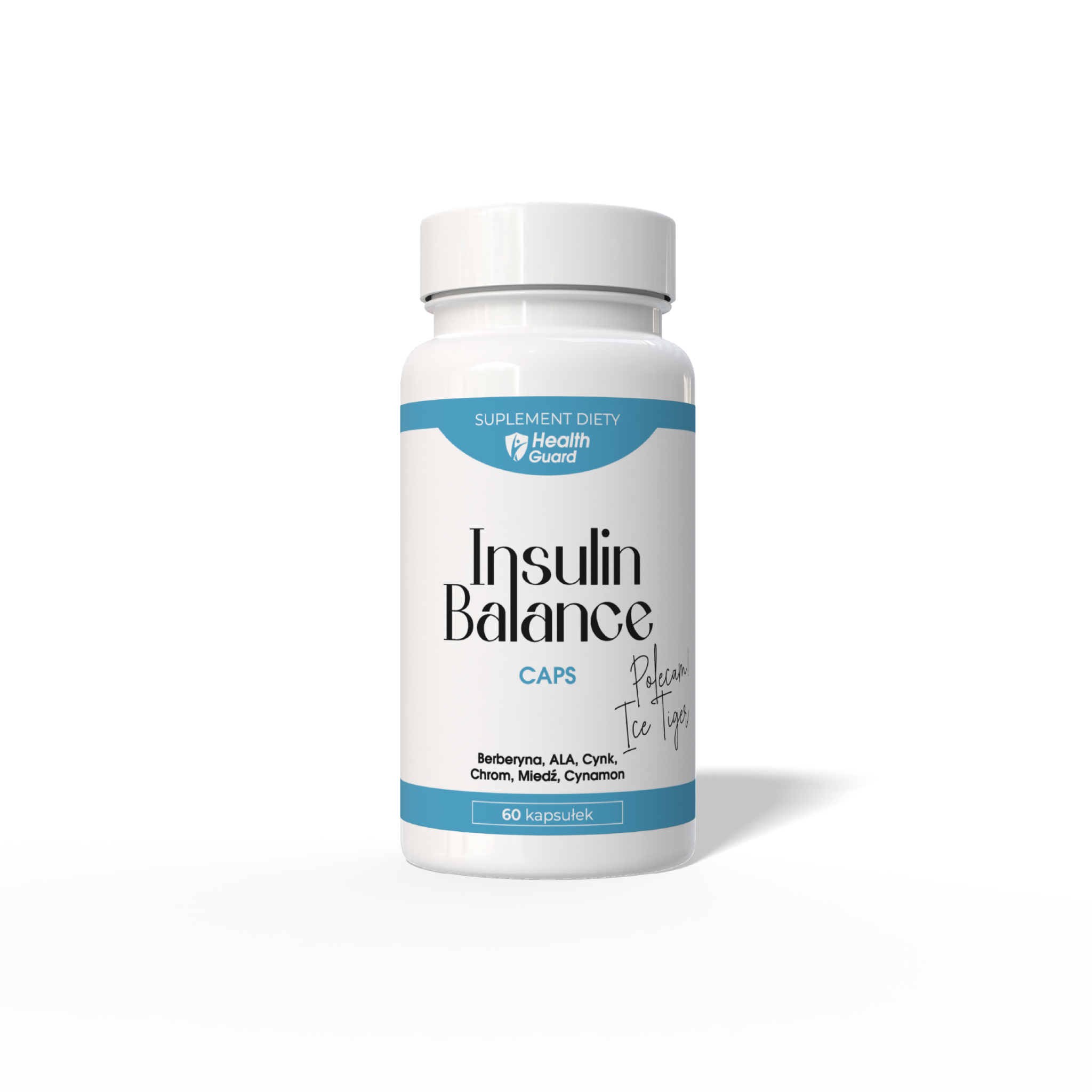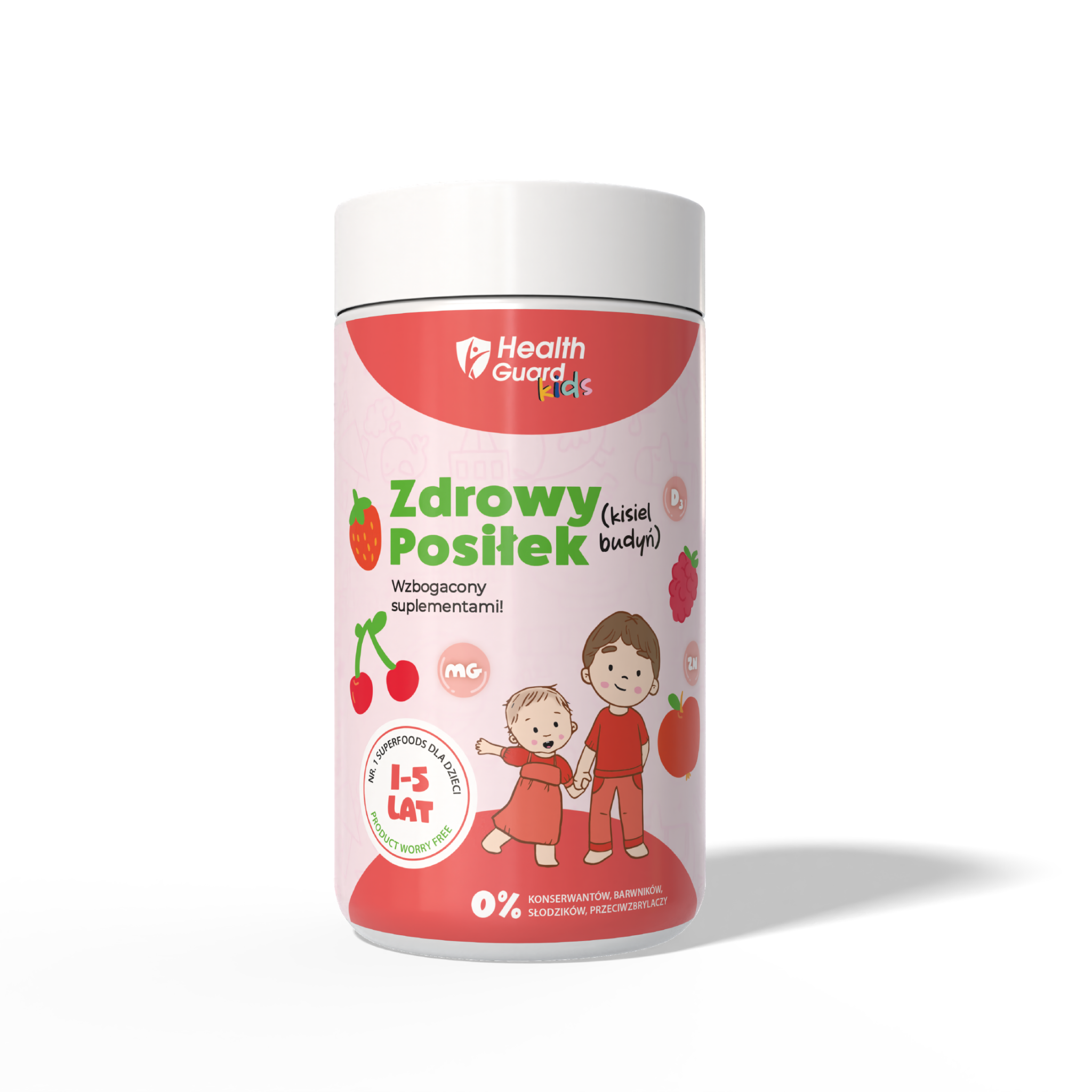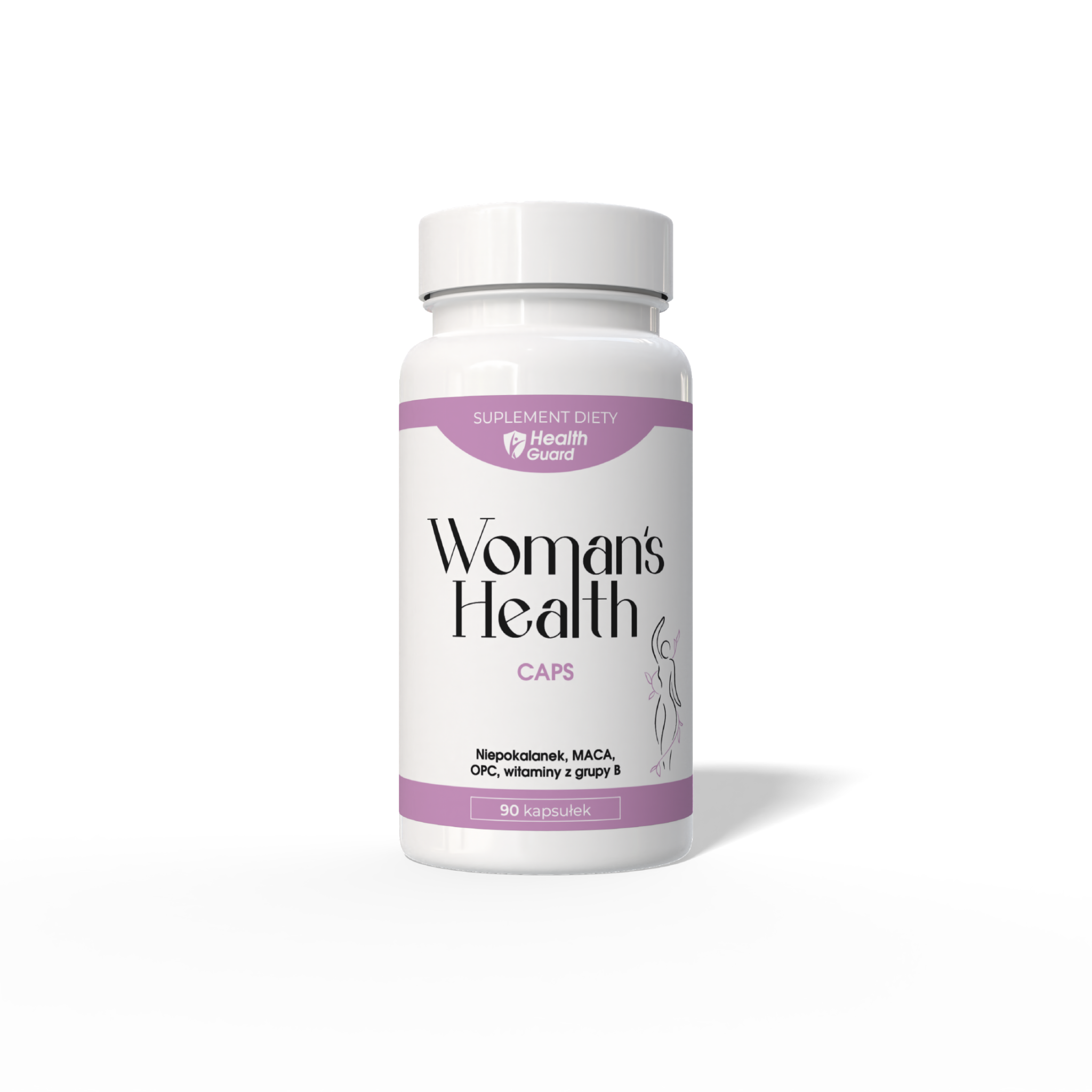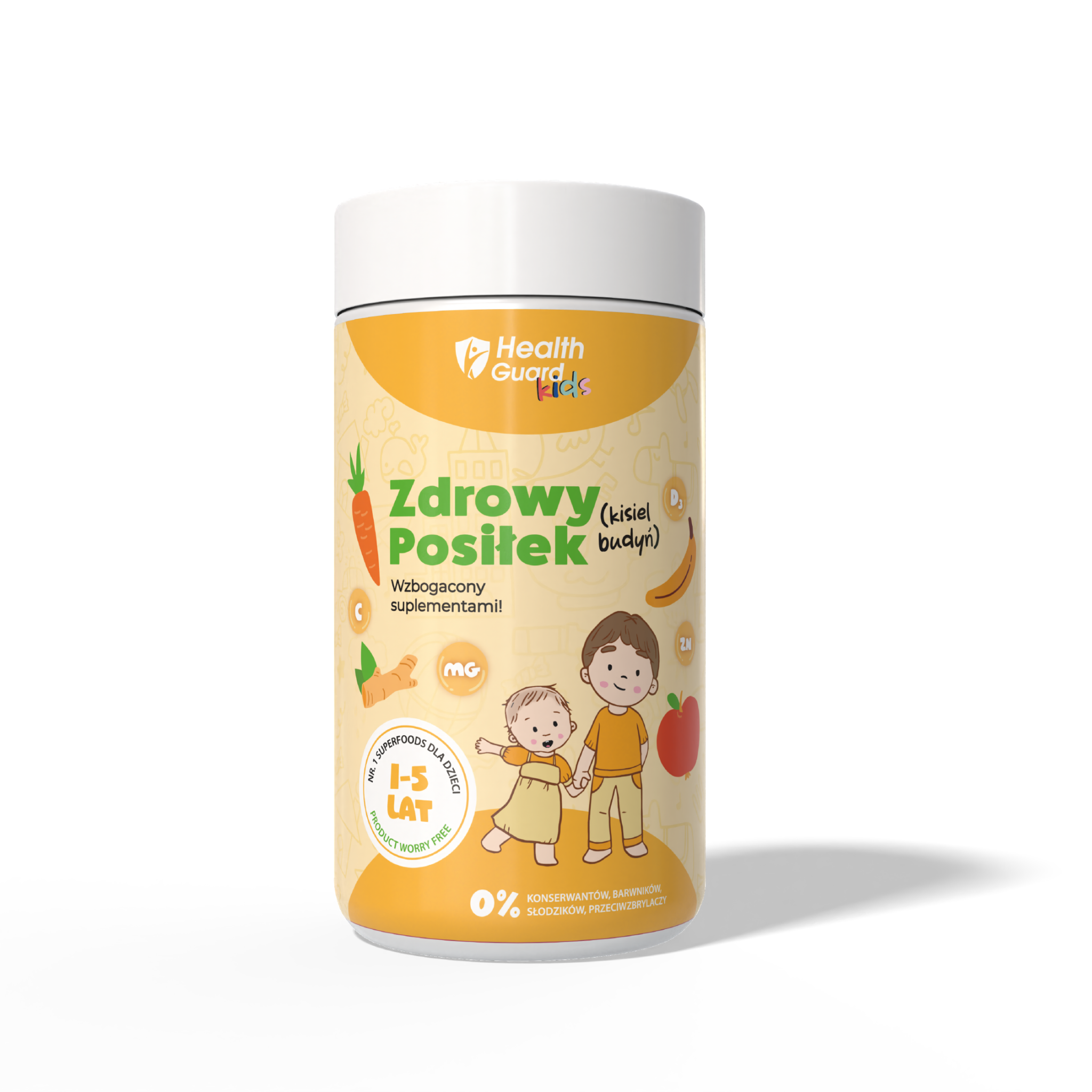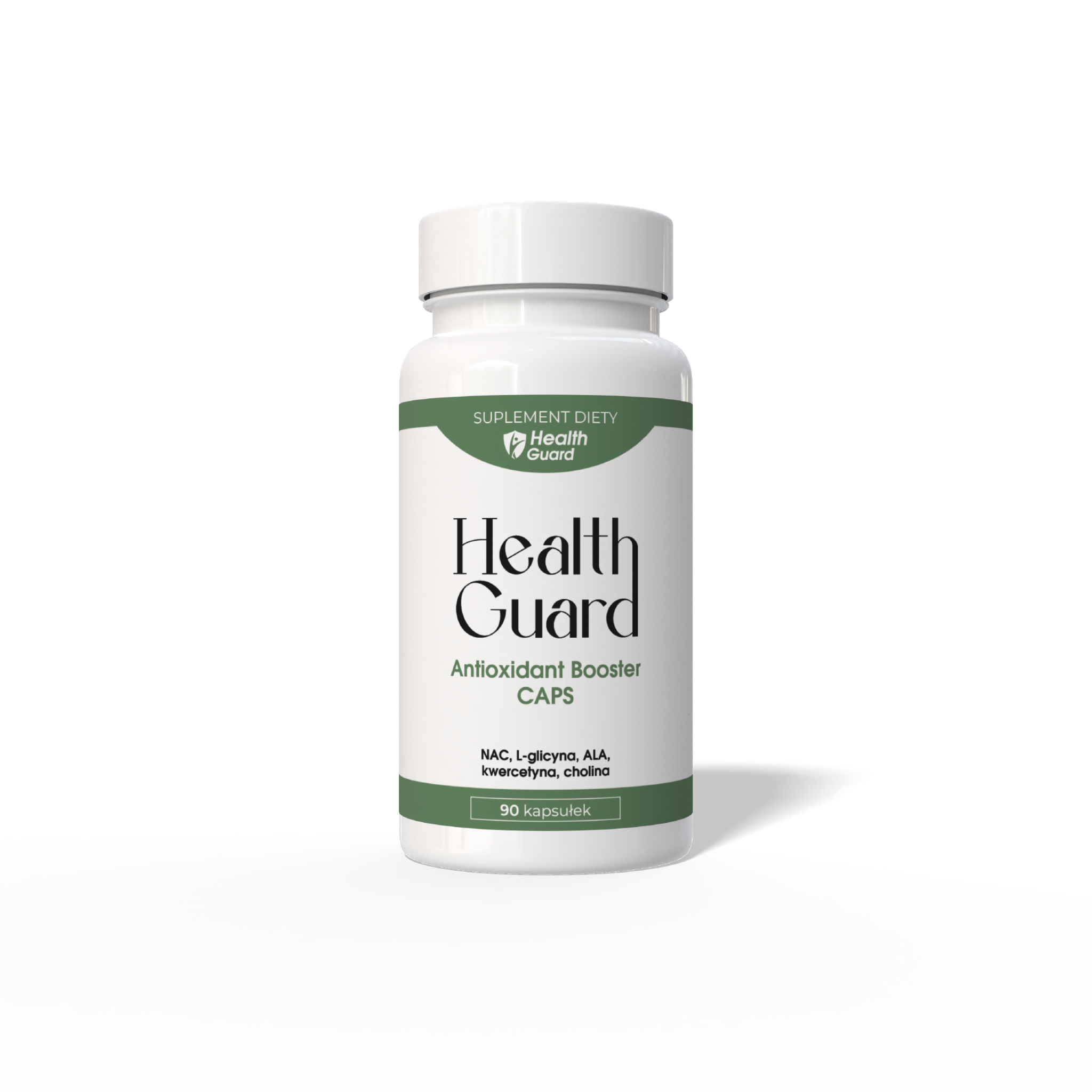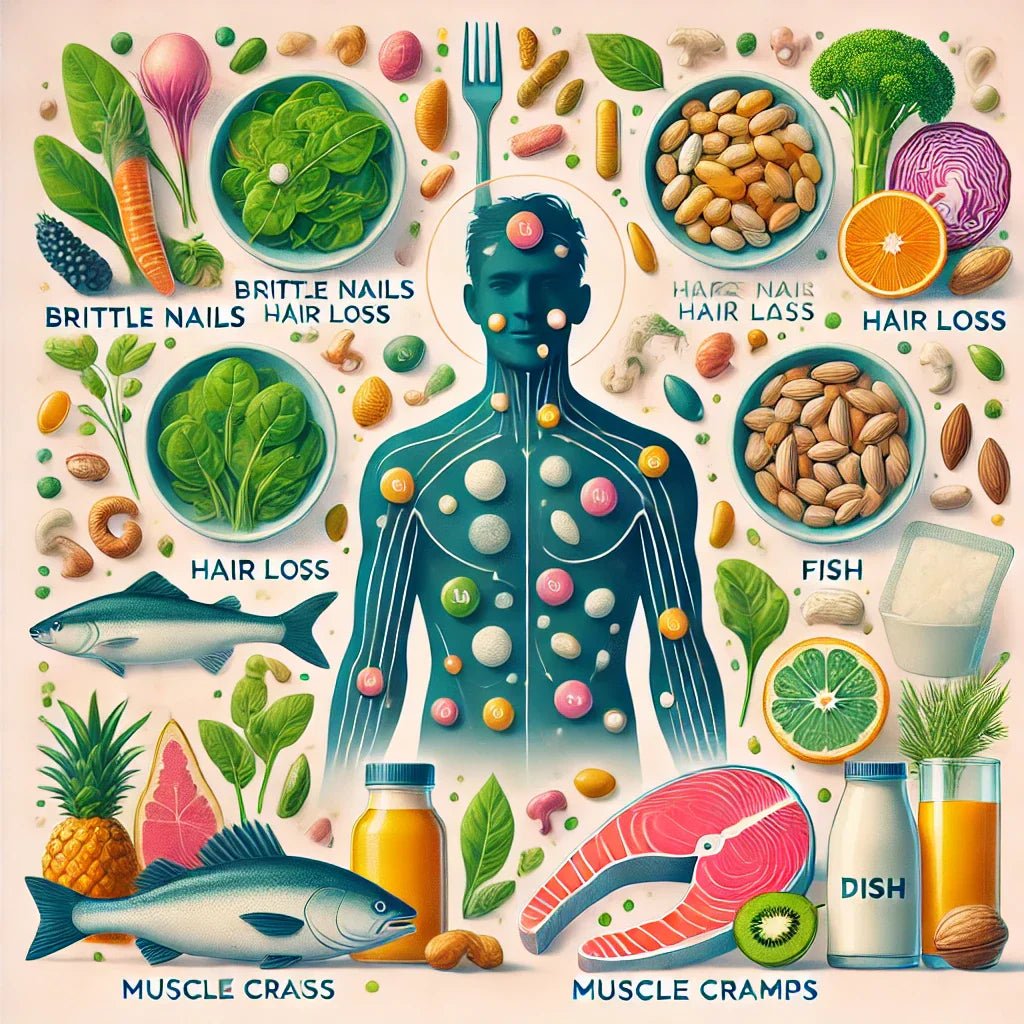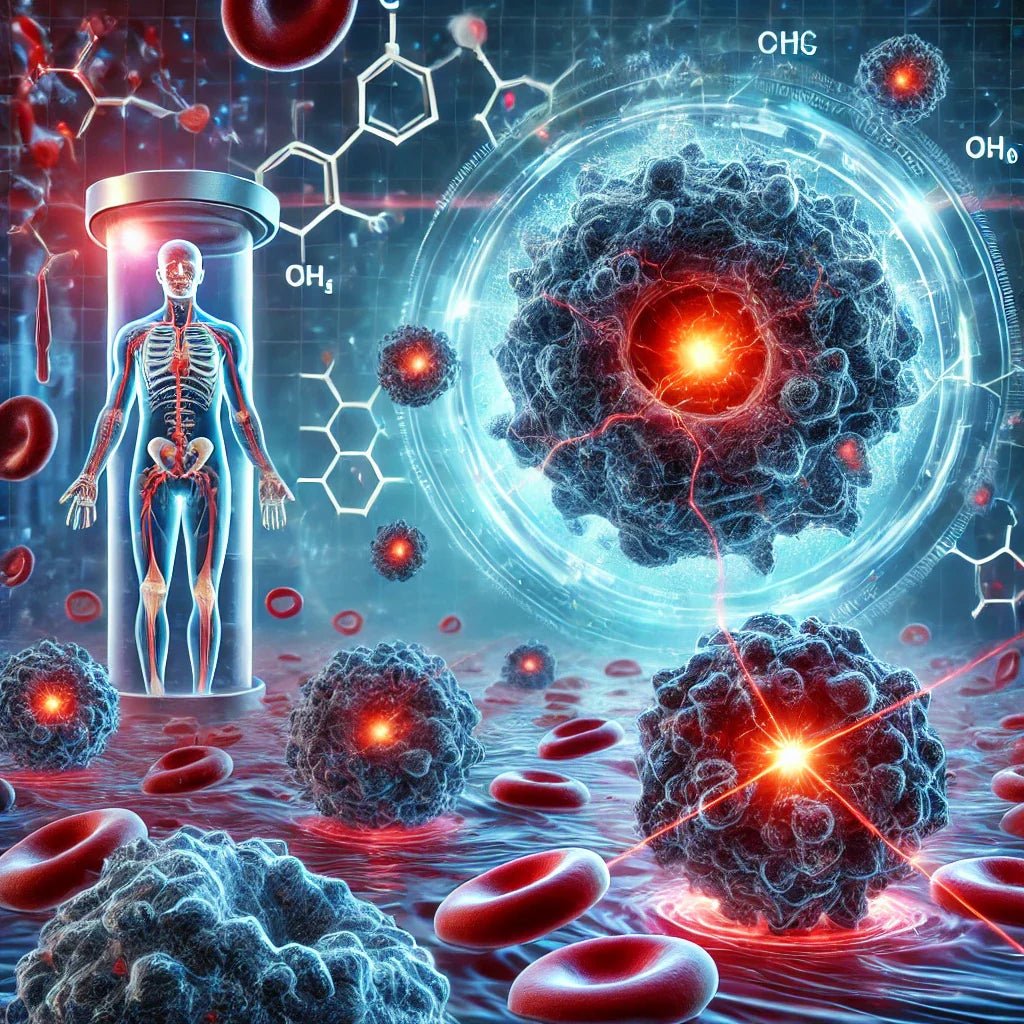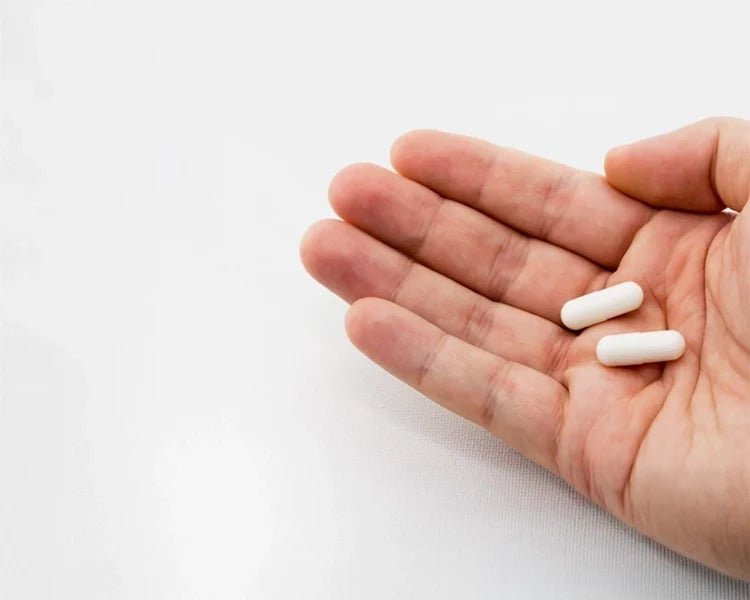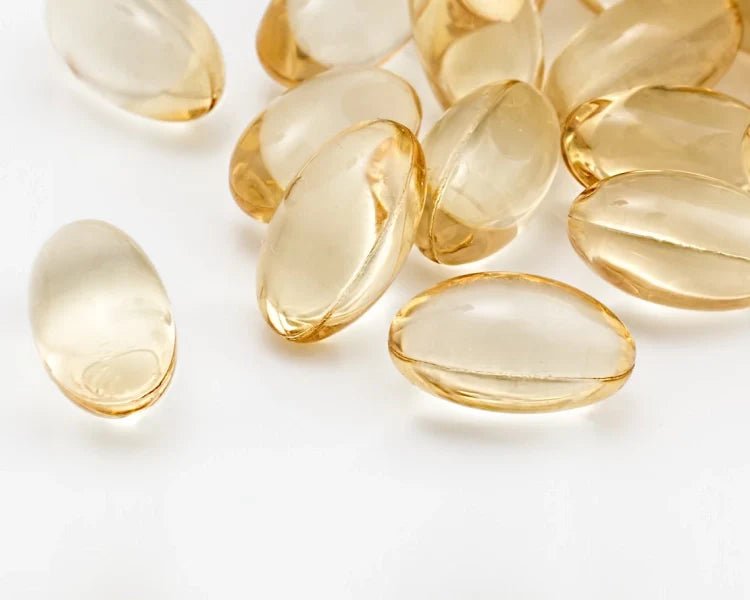Vendor: Health Guard
Sodium Butyrate +
Vendor: Health Guard
HEALTH GUARD CAPS
Vendor: Health Guard
Insulin Balance
Vendor: Health Guard
Women's Health
Vendor: Health Guard
Harmony of the Gut
Vendor: Health Guard
HealthGuard Kids: Strawberry
Mass media about us
Natural ingredients
Gluten, lactose, preservatives and GMO free
Suitable for vegans
Scientifically proven effect


Igor Bondarenko
Graduate of the Military Medical Academy (1982), specialist in biochemistry, immunodiagnostics and kinesiology. Member of the European Federation of Parasitologists, author of 60 scientific publications.

Marta Wcześniak
Clinical dietitian and Chinese medicine practitioner, combining Eastern and Western methods. She promotes a holistic approach to food as a method of healing.

Karolina Wielińska
Clinical dietitian, graduate of the Medical University of Poznań, iridologist, lover of natural medicine and a holistic approach to health.
Verified customer reviews
Find out what our customers think!

Discover the publications of the Scientific Council
What supplements can help reduce stress and improve sleep?
Nowadays, chronic stress and sleep problems affect more and more people. They negatively affect mental and physical health, leading to exhaustion of the body. However, there are effective ways to improve well-being - appropriate supplementation, relaxation techniques and physical activity. In this article, we will discuss what substances help reduce stress and support healthy sleep, as well as how to effectively manage stress on a daily basis. > Adaptogens – natural support for the nervous system Adaptogens are plants with unique properties that help the body adapt to stress and regulate cortisol levels. Thanks to them, the nervous system becomes more resistant to overload, which translates into better well-being and sleep quality. > The most effective adaptogens for stress and sleep: • Ashwagandha – lowers cortisol levels, improves resistance to stress and supports healthy sleep. • Rhodiola rosea – increases resistance to stress, improves concentration and mental endurance. • Ginseng – strengthens the nervous system and adds energy. • Bacopa monnieri – supports memory, concentration and reduces symptoms of anxiety, has a neuroprotective effect. • Brazilian suma (Pfaffia paniculata) – increases the body's resistance to stress, supports regeneration and has antioxidant properties. Reishi – the mushroom of longevity in the fight against stress and insomnia Reishi (Ganoderma lucidum), also known as the “mushroom of immortality,” has been used in Chinese medicine for centuries to support immunity, regeneration, and mental health. Thanks to its adaptogenic properties, reishi effectively helps reduce stress and improve sleep quality. How does reishi affect the body? • affects the nervous system, regulating cortisol levels and supporting emotional balance. • the triterpenes contained in it have a calming effect, helping you fall asleep faster and extending the phase of deep sleep. • polysaccharides contained in reishi increase the activity of the immune system, protecting the body against infections. • reishi helps reduce inflammation, which has a positive effect on mental and physical condition. Studies show that reishi can support the production of GABA, a key neurotransmitter responsible for relaxation and reducing nervous tension. Regular use of this mushroom extract may result in less susceptibility to stress, improved mood, and deeper sleep. The Brain Booster product contains Reishi, Bacopa monnieri and Brazilian Suma (plus choline), thanks to which it effectively supports the body in reducing stress and improving cognitive functions. > Magnesium – a key mineral for the nervous system Magnesium plays an important role in regulating stress and sleep, supporting the nervous system. Its deficiency often leads to insomnia, irritability and muscle tension. Why does magnesium help reduce stress and improve sleep? • Regulates cortisol levels and supports relaxation. • Takes part in the synthesis of melatonin – the hormone responsible for sleep. • Supports the regeneration of muscles and the nervous system. Liquid form of magnesium - better than capsules Liquid magnesium is characterized by faster and better absorption compared to tablets or capsules. It is also more suitable for people with digestive problems, because it does not require additional decomposition in the stomach. > Glycine Glycine is an amino acid that has a calming effect and supports deep sleep. It is often used as a mono-supplement to support the nervous system. Benefits of glycine supplementation: • Improves sleep quality and reduces insomnia. • Supports the activity of GABA neurotransmitters, responsible for relaxation. • It can help the body regenerate after physical and mental exertion. > Melatonin – Pros and Cons of Supplementation Melatonin is a key sleep hormone that regulates the body's circadian rhythm. Supplementation can be helpful, but should be used with caution. Benefits of using melatonin: • Helps you fall asleep and improves the quality of sleep. • Supports the regulation of circadian rhythm, especially after changing time zones. • It has antioxidant properties, protecting cells against oxidative stress. Risks of regular melatonin supplementation: • Long-term use may lead to a decrease in the body's natural production of melatonin. • Excessive supplementation may cause headaches, dizziness and daytime drowsiness. • May cause intense dreams or nightmares in some people. > Antioxidants – inflammation regulation Stress and poor sleep are often associated with chronic inflammation in the body. Antioxidants help reduce it by improving the functioning of the nervous system. Our suggestion? Health Guard Complex (NAC, glycine, ALA, quercetin and choline) • NAC supports the production of glutathione – the most powerful antioxidant. • Glycine has a neuroprotective and calming effect. • ALA and quercetin have anti-inflammatory properties. • Choline supports brain function and neuron regeneration. Health Recovery Complex (selenium, Q10, astaxanthin, vitamin E, ALA, quercetin) • Selenium and Q10 support mitochondrial health and reduce oxidative stress. • Astaxanthin and vitamin E protect cells from damage. How to effectively manage stress on a daily basis? Best relaxation methods: • Mindfulness meditation – reduces tension, improves concentration. • Breathing exercises (e.g. the 4-7-8 method) – lower cortisol levels. • Progressive muscle relaxation (Jacobson method) – reduces muscle tension. • Aromatherapy – essential oils such as lavender or lemon balm have a calming effect. Physical activity – a natural way to reduce stress Regular exercise is one of the best ways to lower cortisol levels and improve your well-being. The best forms of activity for stress: • Yoga – combines breathing exercises, stretching and meditation. • A walk in the fresh air – has a soothing effect on the nervous system. • Strength and cardio training – improves fitness and reduces stress. • Swimming – relaxes the body and mind, reduces the load on joints. Effective stress reduction and improved sleep quality require a holistic approach – appropriate supplementation, relaxation techniques and physical activity. Adaptogens, magnesium, glycine, melatonin and antioxidants can support the body in the fight against stress, but it is also crucial to take care of healthy habits, including eating habits! Diet has a huge impact on SLEEP. The most surprising facts about the impact of diet on the quality and length of sleep --> Fatty meals before bed can disrupt regeneration Eating a heavy, fatty meal for dinner strains the digestive system and can lead to waking up at night. Fats slow down the emptying of the stomach, so the body is busy digesting instead of regenerating. --> Cheese and dairy products can cause intense dreams Foods high in tyramine, such as aged cheeses (e.g., Parmesan, cheddar, gorgonzola), can stimulate the nervous system, resulting in more vivid dreams and sometimes even nightmares. --> Spicy spices can interfere with falling asleep Hot spices like chili and cayenne pepper can raise body temperature and cause sleep problems. However, mild spices like cinnamon, turmeric, and cardamom can support recovery by acting as a relaxant and anti-inflammatory. --> Cherries and cherry juice can naturally increase melatonin levels Studies have shown that drinking Montmorency cherry juice before bed can increase the levels of melatonin in the body, which improves the length and quality of sleep. --> Coffee and decaffeinated tea can still disrupt sleep Some “decaf” coffees and teas contain trace amounts of caffeine, which may affect sensitive individuals. Even a small amount of caffeine consumed in the evening can shorten the deep sleep phase. --> A protein-rich dinner can improve night-time recovery Protein intake at night (e.g. lean meat, eggs, Greek yogurt) can aid muscle recovery and stabilize blood sugar levels, which prevents night wakings. If you have trouble putting down meat, eggs, or fish - DRINK A GLASS OF COLLAGEN BROTH - it's a great source of easily digestible amino acids! --> Drinking alcohol before going to bed reduces the quality of regeneration Although alcohol may initially help you fall asleep, it disrupts REM sleep, the most important phase for mental rest and memory consolidation. The result is shallower sleep and frequent awakenings. --> Bananas as a natural "sleep aid" Bananas contain magnesium, potassium and tryptophan – ingredients that help relax muscles, reduce stress and support melatonin production. WARNING! RAW BANANAS ARE HARDER TO DIGEST – bake or cook it with groats and cinnamon By consciously choosing products and spices, we can naturally improve the quality of sleep, and additionally, combining a proper diet with good sleep hygiene and physical activity can significantly improve the body's regeneration and resistance to stress. If you are looking for effective supplements that support regeneration and resistance to stress, check out the offer at HealthGuard.pl Author: MARTA WCZEŚNIAK - clinical dietitian, TCM therapist
Learn moreThe most common vitamin and mineral deficiencies – how to recognize and supplement them?
Vitamins and minerals are essential for the proper functioning of the body, affecting immunity, metabolism, the nervous system and bone health. Modern lifestyles, highly processed diets, stress, and insufficient exposure to the sun can lead to their deficiencies. Symptoms are often non-specific - chronic fatigue, weakness, skin problems or difficulty concentrating can result from a lack of key micronutrients. Interestingly, research indicates that even people who care about a healthy diet can be deficient in certain nutrients, because the quality of modern food has changed significantly. The most common deficiencies and their symptoms: Vitamin D – the key to strong bones and immunity Vitamin D, known as the "sunshine vitamin", is synthesized in the skin under the influence of sunlight. Unfortunately, in our latitude during the autumn and winter months, this synthesis is almost impossible. Studies have shown that nearly 90% of Poles suffer from its deficiency, of which 60% are serious. Vitamin D deficiency can lead to muscle weakness, bone pain, low mood and increased susceptibility to infections. It is worth knowing that a deficiency of this vitamin can also manifest itself in chronic fatigue and skin problems. Interestingly, some populations, despite living in warm regions of the world, also struggle with vitamin D deficiency. This is due to wearing clothes that cover the body and using sunscreens that block the synthesis of the vitamin in the skin. A diet rich in oily fish, eggs and vitamin D-fortified milk can partially meet requirements, but most people should consider supplementation, especially in the fall and winter. Magnesium – support for the nervous system and muscles Magnesium is one of the most important minerals in the body – it takes part in over 300 enzymatic processes. Its deficiency is manifested by muscle spasms, eyelid twitching, nervousness and difficulty falling asleep. Stress and physical activity increase the demand for magnesium, which means that many people suffer from its deficiency without even realizing it. Studies indicate that nearly 70% of the population does not get enough magnesium from their diet. Interestingly, over the last 50 years, the magnesium content in vegetables and fruits has decreased by about 10%, which is mainly due to intensive farming methods and soil depletion. Magnesium can be found in cocoa, pumpkin seeds, nuts and whole grain products, but people exposed to high mental or physical stress may require additional support in the form of supplementation. Iron – essential for red blood cell production Iron deficiency is one of the most common deficiencies in the world and mainly affects women of childbearing age and people on plant-based diets. Pale skin, weakness, hair loss, headaches and fatigue may indicate an insufficient amount of this element in the body. In more advanced cases, anemia occurs, which significantly reduces the quality of life. Iron in animal products (e.g. liver, red meat) is more absorbable than that found in plants, which is why people on a vegan and vegetarian diet should pay special attention to supplementing iron. It is worth knowing that its absorption is improved by vitamin C - that is why orange juice with a meal rich in iron can increase its absorption by up to 30%. On the other hand, coffee and tea contain compounds that hinder the absorption of this mineral. Vitamin B12 – essential for the nervous and hematopoietic systems Vitamin B12 is essential for the functioning of the nervous system and the production of red blood cells. Its deficiency leads to symptoms such as numbness in the limbs, memory problems, weakness and anemia. Interestingly, vitamin B12 deficiencies can develop for years because the body stores it in the liver, but when reserves are depleted, the effects can be serious. B12 is found only in animal products, so people on a plant-based diet are particularly susceptible to deficiency. In the past, this problem was less common because people drank water from natural sources that contained bacteria that synthesized the vitamin. Today, due to water filtration and changes in agriculture, supplementation is necessary for those who do not consume meat or dairy products. Zinc - for immunity and healthy skin Zinc is a key element for the immune system, skin health, and wound healing. Its deficiency is manifested by weakened immunity, slower wound healing, skin problems, and weakened hair and nails. Interestingly, zinc also plays an important role in the functioning of the senses of taste and smell - people with zinc deficiency often complain of disorders in the perception of taste. Not everyone knows that the demand for zinc increases during periods of increased stress and during intense physical exercise. The body does not have large reserves of this element, so its regular supply in the diet is crucial. Zinc can be found in meat, fish, pumpkin seeds and nuts, but people on plant-based diets may have difficulty with its adequate supply. Vitamin and mineral deficiencies are common and can lead to many health problems. It is worth paying attention to the symptoms that the body sends and taking care of a varied diet rich in valuable nutrients. In the case of greater demand or problems with their absorption, it is worth considering appropriate supplementation. Preventive tests and a conscious approach to nutrition can help avoid more serious health consequences. Author: DOMINIKA MODRZEWSKA - dietician, acupuncturist and hirudotherapist
Learn moreImmunotherapy for Non-Hodgkin's Lymphoma - Breakthrough Treatment with NK Cells and Niacinamide
Niacinamide (Vitamin B3) Enhances NK Cell Therapy in Blood Cancers Immunotherapy in the treatment of non-Hodgkin's lymphoma and other blood cancers Oncologists have been trying for years to improve the treatment of non-Hodgkin lymphoma (NHL) and other hematological malignancies with immunotherapy. Methods used include: • Monoclonal antibodies that attack cancer cells. • Intravenous transfusion of NK (natural killer) cells, a specialized subgroup of lymphocytes capable of destroying cancer cells. Despite their great therapeutic potential, these methods have limitations, especially in advanced stages of the disease. Breakthrough: Niacinamide-Enhanced NK Cells Scientists at the University of Minnesota, working with a Jerusalem biotech company, have discovered that natural killer cells from donors can be much more effective at killing cancer cells when grown in the presence of niacinamide (the active form of vitamin B3). Why niacinamide? • Niacinamide (nicotinamide) is an absorbable form of vitamin B3 that is rapidly converted to NAD (nicotinamide adenine dinucleotide). • NAD is crucial for mitochondrial function, supporting ATP (cellular energy) production in immune system cells. • An increase in NAD levels causes increased cytotoxicity of NK cells and increased production of inflammatory cytokines, making them more effective in eliminating cancer cells. First Clinical Trial: Promising Results A clinical trial was conducted in 19 patients with relapsed or refractory non-Hodgkin's lymphoma and multiple myeloma. Patients received: • Monoclonal antibodies • NK cells cultured in the presence of niacinamide Results: • 74% of patients showed a positive response to therapy (14 out of 19 people). • 13 patients achieved complete remission. • 1 patient had a partial response to treatment. • NK cells persisted in blood, bone marrow, and tumors for up to two weeks after infusion. • The therapy was well tolerated, with no serious side effects. Broader Uses of Niacinamide: Mitochondrial and Cardiovascular Protection In addition to its use in cancer therapy, niacinamide has also shown potential to improve survival following cardiac arrest: • In animal studies, niacinamide helped restore the activity of NAD-dependent enzymes in ischemic myocardium. • This indicates that restoring NAD levels may be an effective treatment strategy for diseases associated with mitochondrial dysfunction. Niacinamide-enhanced NK therapy is a promising breakthrough in cancer immunotherapy. Although further studies are needed, preliminary results indicate that optimizing immune cell metabolism by increasing NAD levels may improve the efficacy of cancer treatment. Bibliography 1. Cichotski F. et al. Nicotinamide enhances natural killer cell function and yields remissions in patients with non-Hodgkin lymphoma. Science Translational Medicine 2023; 15(75): 705. 2. Zhu X. et al. Nicotinamide restores tissue NAD+ and improves survival in rodent models of cardiac arrest. PLoS One 2023; 18(9): e0291598. Author: Prof. Igor Bondarenko (translated from English)
Learn more
